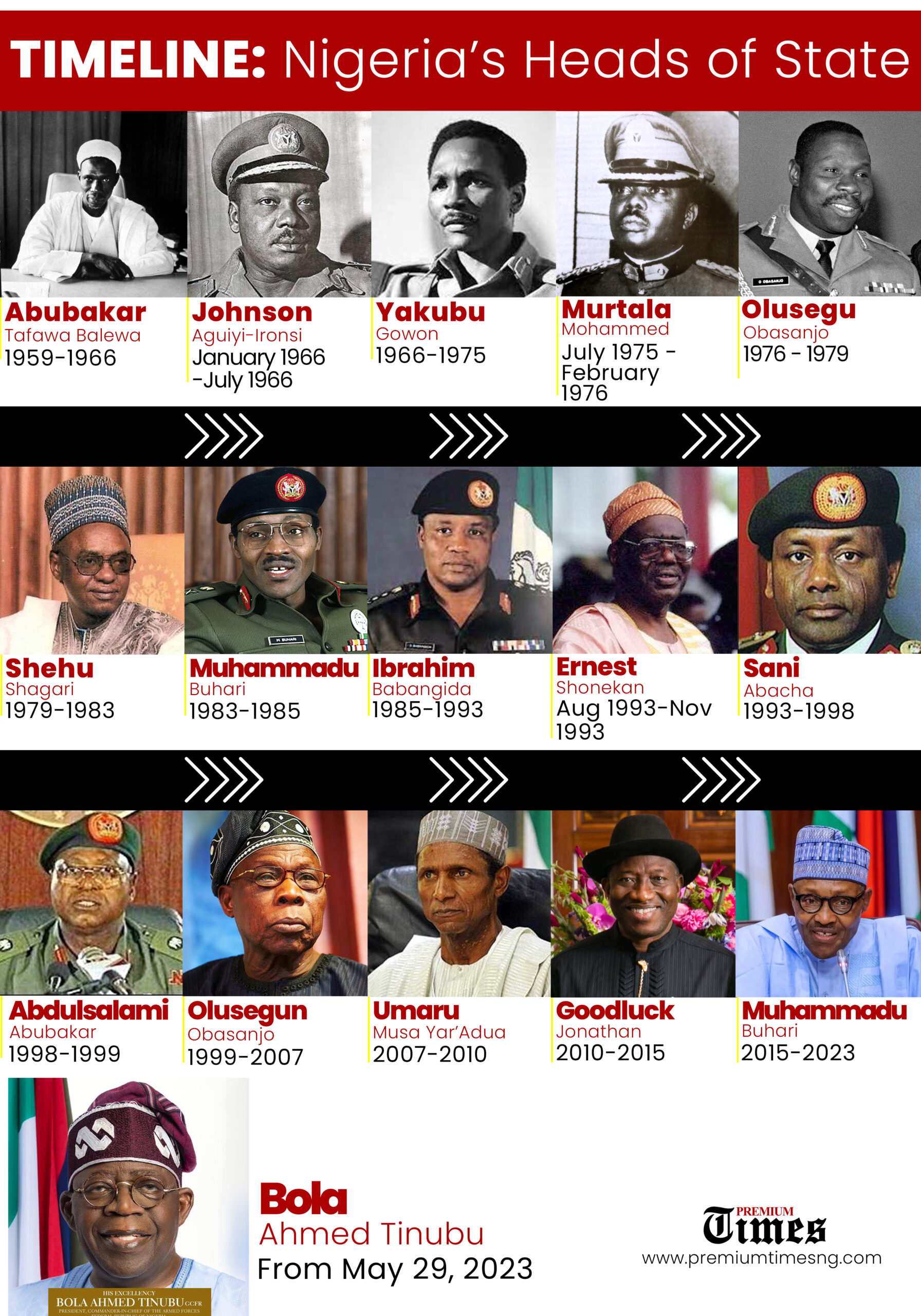Exploring The Names Of Military Rulers In Nigeria: A Historical Perspective

Nigeria, a nation rich in culture and diversity, has a complex political history that has been significantly shaped by military rule. From the post-colonial era to recent times, military leaders have played pivotal roles in the governance of the country. Understanding the names of military rulers in Nigeria offers insight into the challenges and triumphs faced by the nation. This exploration reveals the impact of these leaders on Nigeria's political landscape and societal development.
The military rulers of Nigeria have often emerged during times of political instability, seizing power through coups and authoritarian regimes. Their rule has been characterized by various policies, some aimed at national development while others led to widespread human rights abuses. As we delve into the names of military rulers in Nigeria, we uncover the stories behind their ascension to power and the legacies they left behind.
In this article, we will discuss the most notable military rulers in Nigeria, their biographies, and their contributions to the nation’s history. By analyzing their leadership styles, we can gain a better understanding of how military governance has influenced Nigeria's current political climate. Join us as we navigate through the turbulent waters of Nigerian military rule and shed light on the individuals who have shaped the nation’s destiny.
Who Were the Prominent Military Rulers in Nigeria?
Nigeria has had several military rulers since its independence in 1960. The following list highlights some of the most significant leaders and their tenures:
- General Johnson Aguiyi-Ironsi (1966)
- General Yakubu Gowon (1966-1975)
- General Murtala Muhammed (1975-1976)
- General Olusegun Obasanjo (1976-1979)
- General Muhammadu Buhari (1983-1985)
- General Ibrahim Babangida (1985-1993)
- General Sani Abacha (1993-1998)
- General Abdulsalami Abubakar (1998-1999)
What Were the Major Contributions of Military Rulers in Nigeria?
Military rulers in Nigeria have had varied impacts on the country. Some of their contributions include:
What Were the Challenges Faced by Military Rulers in Nigeria?
Despite their contributions, military rulers also faced significant challenges, including:
- Widespread public discontent and protests.
- International condemnation for human rights violations.
- Political opposition and coups against their regimes.
- Economic struggles and management of resources.
What is the Biography of General Yakubu Gowon?
| Personal Detail | Information |
|---|---|
| Date of Birth | October 19, 1934 |
| Place of Birth | Pankshin, Nigeria |
| Military Rank | General |
| Tenure as Ruler | 1966-1975 |
| Significant Events | Biafra War, Nigerian Civil War |
| Post-Military Career | Diplomatic roles and advocacy for peace |
How Did General Murtala Muhammed Change Nigeria?
General Murtala Muhammed's tenure was marked by significant reforms aimed at improving governance and reducing corruption. He is remembered for:
- Initiating a return to civilian rule.
- Establishing the 1975 Land Use Decree.
- Creating a framework for economic development.
What Legacy Did Sani Abacha Leave Behind?
General Sani Abacha's rule was one of the most controversial periods in Nigerian history, characterized by severe human rights abuses and repression. His legacy includes:
- Increased military spending.
- Crackdown on dissent and opposition.
- Allegations of corruption and embezzlement of state funds.
Can We Draw Lessons from the Names of Military Rulers in Nigeria?
Reflecting on the names of military rulers in Nigeria allows us to draw important lessons about governance and the rule of law. The tumultuous history serves as a reminder of the importance of democratic principles and the need for accountability in leadership. It highlights the consequences of military rule and the value of peaceful transitions to democracy.
What Are the Current Implications of Military Rule in Nigeria?
The legacy of military rulers continues to influence Nigeria’s political landscape today. The effects of past regimes can be seen in:
- The ongoing struggles with corruption.
- Challenges in the security sector and governance.
- Public demand for transparency and justice.
Conclusion: Understanding the Names of Military Rulers in Nigeria
In summary, the names of military rulers in Nigeria encapsulate a critical part of the nation’s history. By examining their biographies, contributions, and the challenges they faced, we gain a better understanding of the complexities of military governance. As Nigeria continues to evolve, the lessons learned from these leaders will remain essential in shaping a more democratic and prosperous future.
ncG1vNJzZmivp6x7o77EnKKepJxjwqx7xJyfqJyRnrm6fZRopZqllah6sLKMpqCloaSWv7p50a6jnqqjYravec2inp6qmZZ7qcDMpQ%3D%3D
